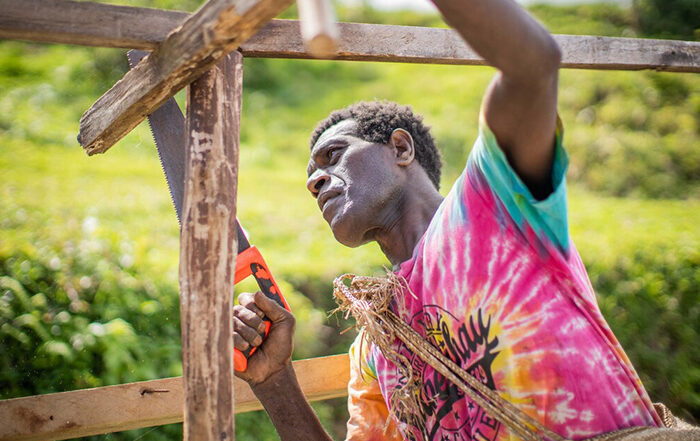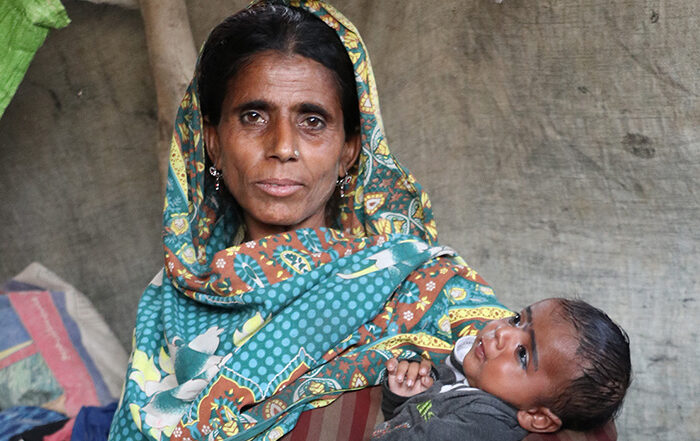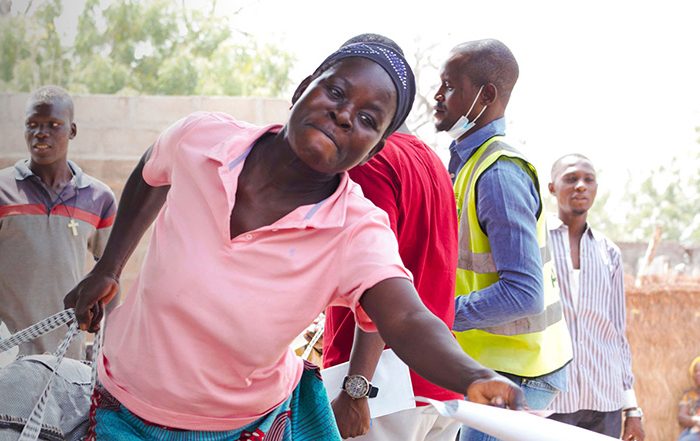At ShelterBox we always look to see how we can do more to support communities as they recover after disaster strikes.
We listen to people to understand what aid items and support will have the most impact. We know that shelter is the foundation for people’s recovery after disaster – but we also know that situations can be complicated, and meeting people’s needs is not a case of ‘one size fits all’.
One way we support people after disaster is giving people further assistance in the form of small amounts of cash. Adding cash to the mix of support we can provide gives us more options to help communities recover. Cash assistance also supports local markets and helps kickstart local economies. It helps people feel a sense of dignity as they can choose how best to use the support given to them. This may be the most important benefit.
Read on to discover how cash assistance is helping communities to rebuild and recover after disaster strikes.

How did ShelterBox get started with cash assistance?
Our journey with cash assistance began in 2020 after Typhoon Tisoy in the Philippines.
Alongside shelter materials and training, we provided small cash amounts to families. This enabled people to hire specialised labour and purchase additional materials like wood to repair or rebuild their homes.
This pilot project in the Philippines and another in Cameroon were very successful. So, we then provided cash as part of a support package to Ukrainian refugees. People on the move were able to pay for things like food, transport, accommodation and essential items.
Cash was also an important element of our response to severe flooding in Pakistan in 2023. People like Ghulam were able to restart their livelihoods, increasing their resilience to future events:
“I got a hand pump installed in my home for my daughters as they had to walk miles alone to drink water which was unsafe. We also bought goats, as we lost all of them in the floods. We will use the goats we have now to start a business and meet our needs.”

How do we ensure cash assistance is effective?
We only provide cash assistance when the local conditions are right.
This means that we check there are materials and services available to buy locally. And that money can be transferred safely and easily. Afterwards, we contact people to make sure they’ve been able to buy what they needed.
Recently, cash distributions were highly valued by people in Nkhotakota, Malawi. Households affected by the flooding in early 2024 received cash worth around £100. This was alongside a full shelter kit of tarpaulins, tools and fixings and other essential items. It was up to each person what they chose to spend the money on. Some hired skilled labour to help with the construction of their shelters. Other people bought wooden framing materials and bought or rented land to build a new home on.
People spoke with a lot of enthusiasm about their plans for its use. Some families hoped to have part of it left over to invest in businesses. These would restart their livelihoods which were destroyed in the floods.
Evelyn shared her plans, “The money will help us to start self-recovery initiatives, like small scale business… My plan is to have my house constructed following the build back better principles. Using the right raw materials like cement will help me not face the same scenario as this one.”

We’re always learning and improving
As with everything we do, we will keep evaluating the impact of using cash. We want to make sure it has the biggest possible difference. We have learnt a great deal about how to put in place this type of support – from the people we support, our own trials, and global best practice. We know it is a huge help to communities as they rebuild and recover after disaster strikes.




